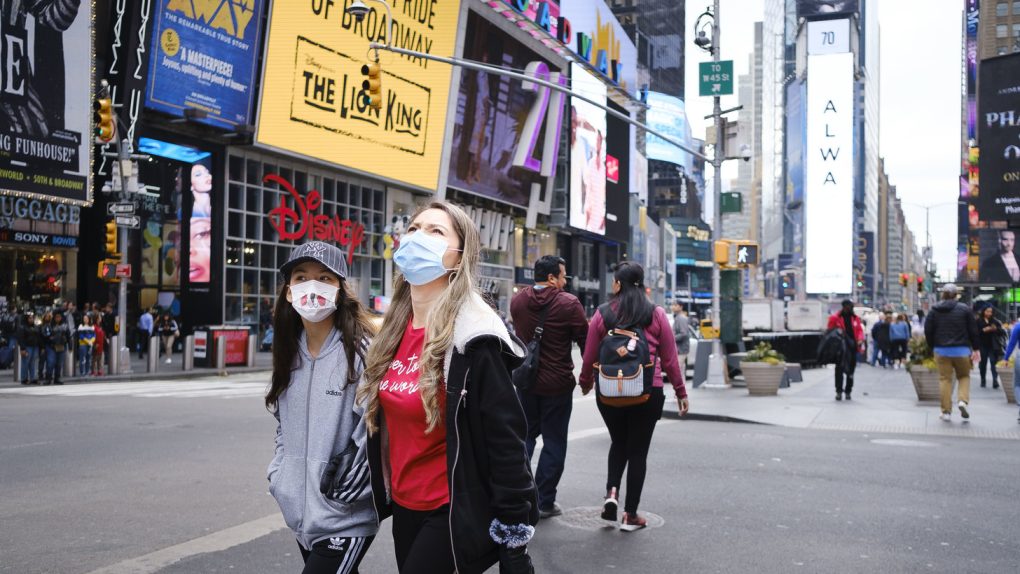- Coronavirus myths are spreading almost as fast as the virus itself.
- Misinformation about face masks, symptoms, and what to do if you’re infected have flooded the web.
- Visit BGR’s homepage for more stories.
Coronavirus and the COVID-19 pandemic have absolutely exploded across the planet, infecting well over 100,000 people (that we know of) and throwing a wrench in daily life with mandatory lockdowns, school closings, and social distancing. Along with news of the virus and its spread, a flood of misinformation has filled every corner of the internet.
Much remains unknown about COVID-19 and this particular strain of coronavirus. Some early advice issued by health officials proved to be only half right, while other tips and tricks offered by random web denizens are just plain wrong. It’s time to bust some myths.
Masks will keep you from getting infected
As the coronavirus began to spread outside of China there was a huge demand for face masks that people assumed would give them an edge against the virus. Of all the strange things that the coronavirus has caused people to hoard, face masks might be the least likely to actually protect you from getting sick.
For starters, many of the masks that flew off store shelves aren’t even the kind that can stop a virus from passing through, making them utterly useless. The correct mask, called the N95 respirator, is often used by healthcare workers, but that doesn’t make them a good fit for regular, healthy individuals. In fact, health officials warn that improper use of the mask may ultimately make you more vulnerable to the virus.
However, if you become sick, wearing such a mask during your illness can help prevent the spread of your infection to others. Only if you’re sick should be wearing a mask.
It’s just the flu
You’ve probably heard some people say that COVID-19 is basically just the flu, and that all the hype around the pandemic is being overblown by the media. Nothing could be further from the truth, and health experts warn that despite their pleas, we’re not doing enough to blunt the spread of the virus that could ultimately claim countless lives.
A person infected with COVID-19 can have varying degrees of symptoms based on their age and overall health prior to being infected. The virus is increasingly deadly in older individuals, especially those over 60, and the risk of serious complications goes up the older the person is. Those with other chronic health conditions are also at an increased risk of death.
The mortality rate of COVID-19 — that is, the percentage of infected individuals who die — appears to be many times higher than the seasonal flu. The fact that COVID-19 is highly contagious and can be transmitted even when people aren’t showing symptoms means that it can easily spread through a population and reach the most vulnerable individuals.
Only people with the virus should self-isolate
While it’s tempting to think that your way of life only changes after you get sick, that’s not the case. Slowing the spread of the pandemic is only possible if enough people take recommendations to socially distance themselves to heart. That means healthy people should be staying home, too, to prevent themselves from getting infected and furthering the spread.
Avoiding large gatherings and working from home when possible are good first steps, but that doesn’t mean you should be hitting up your local bar on the weekends. In fact, many countries are now limiting or closing bars and restaurants because they’re the perfect environment for COVID-19 to spread.
It’s as simple as this: If you’re not sick, you can’t spread the virus to others, and even if you’re young and healthy, staying virus-free means that you can’t unwittingly spread the infection to others who may have much more serious health consequences. We all have to do our part.
The vaccine is coming soon
Some government officials are doing their best to reassure frightening citizens that a vaccine is right around the corner. While it’s important to ensure that we prevent widespread panic, the truth of the matter is that a vaccine for COVID-19 isn’t even close to ready.
A handful of biotech companies have experimental vaccines in the works, with human testing of one of those vaccines beginning this week. However, ensuring the safety and effectiveness of the vaccine takes a long, long time, and even if everything goes smoothly and a vaccine is proven to be safe, we’re still at least a year away from a publicly-available vaccine.
You’ll know if you have COVID-19
We know a lot about the symptoms of this coronavirus infection, including shortness of breath, dry cough, and chest pain, just to name a few. However, that doesn’t mean you’ll immediately show signs of having the virus if you do become infected, and that’s one of the reasons why this outbreak is so unpredictable.
Tests have shown that COVID-19 can easily be transmitted by people who have no noticeable symptoms whatsoever. In fact, it may take weeks for symptoms to surface, meaning that if you’re not socially isolating, you could be spreading the infection to countless people without even realizing it.
The only way to know for sure if you have the virus is to be tested for it. However, if you’re young and otherwise healthy, doctors aren’t likely to ask you to come in for a test unless you’re really, really feeling terrible. People who may have the virus should stay home, avoid contact with others, and rest up rather than lining up at the local clinic.








